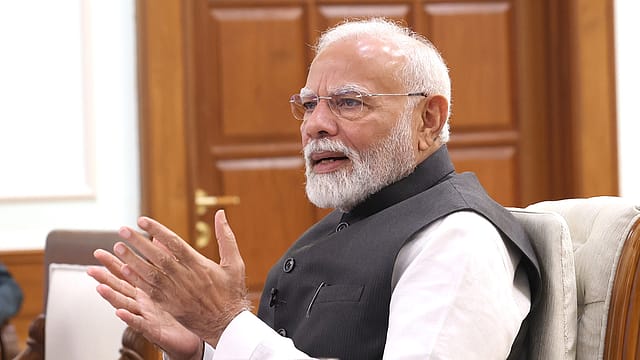Cabinet nod to ₹2,000 crore NCDC aid scheme, approves ₹6,520 crore under PMKSY
ADVERTISEMENT

The Cabinet, chaired by Prime Minister Narendra Modi, has approved the Central Sector Scheme “Grant in aid to National Cooperative Development Corporation (NCDC)”, with an outlay of ₹2000 crore for four years from 2025-26 to 2028- 29 i.e. ₹500 crore each year from FY 2025-26. Basis the grant in aid of ₹2000 crore, NCDC will raise ₹20,000 crore from the open market over four years. These funds will be used for granting loans to cooperatives for setting up new projects or expansion of plants, and loans for meeting the working capital requirements.
The government has also approved ₹6,520 crore, including ₹1,920 crore for the ongoing Central Sector Scheme “Pradhan Mantri Kisan Sampada Yojana” (PMKSY), during the 15th Finance Commission Cycle (2021-22 to 2025-26).
Key Highlights:
1. The source of finance will be through budgetary support from the government. Approximately 2.9 crore members of 13,288 cooperative societies of various sectors like Dairy, Livestock, Fisheries, Sugar, Textile, Food Processing, Storage and Cold Storage, Labour and Women-led cooperatives will benefit.
2. NCDC will be the executing agency for disbursement, follow-up, monitoring of implementation, and recovery of loan disbursed out of the fund. It will provide loans to cooperatives either through the state government or directly. Cooperatives, which meet the criteria of direct funding guidelines of NCDC, would be considered for financial assistance directly against admissible security or state government guarantee. These NCDC will provide long-term credit for setting up or modernisation or technology upgradation, or expansion of project facilities and working capital for businesses.
3. The government expects that it will lead to the creation of income-generating capital assets and provide cooperatives with much needed liquidity in the form of working capital. The availability of loans will help cooperatives in capacity augmentation, modernisation, diversification of activities, increasing profitability and enabling them to increase productivity and generate jobs. Additionally, term loans for infrastructure development will also create jobs across different skill levels.
4. India has more than 8.25 lakh cooperatives, with more than 29 crore members and 94 percent of farmers are associated with them. They cover a wide array of activities, including credit and banking, fertiliser, sugar, dairy, marketing, consumer goods, handloom, handicraft, fisheries, housing, etc. The government believes due to their important socio-economic contribution to the rural economy, it is essential to support the weaker sectors like dairy, poultry & livestock, fisheries, sugar, textile, processing, storage & cold storage, labour cooperatives and women cooperatives. etc., by granting them long-term and working capital loans.
5. Under the PMKSY, approval includes (i) ₹1000 crore to support the setting up of 50 multi-product food irradiation units and 100 food testing labs with NABL accreditation, and (ii) ₹920 crore for sanctioning projects under various component schemes of PMKSY.
6. Both ICCVAI and FSQAI are demand driven component schemes of PMKSY. The Expression of Interests (EOIs) would be floated for inviting proposals from eligible entities across the country. The proposals received against the EOI would be approved after proper scrutiny as per eligibility criteria as per the extant scheme guidelines.